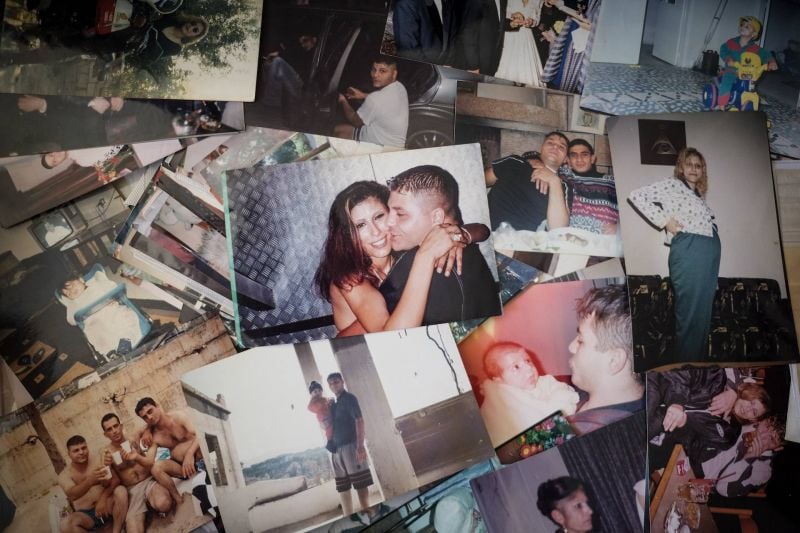
Vicken Euljeckjian and his wife Linda (center) in a photo surrounded by other family pictures. Feb. 6, 2024. (Credit: João Sousa/L'Orient Today)
YEREVAN — A Lebanese-Armenian father of two in detention in Azerbaijan since 2020 is facing deteriorating health, family members tell L’Orient Today, fearing he faces a long prison sentence abroad.
For more than three years, 44-year-old Vicken Euljeckjian has reportedly been detained in Azerbaijan after being captured in Nagorno-Karabakh as a civilian on Nov. 10, 2020.
He was sentenced to 20 years in prison after Baku accused him of being a “terrorist” mercenary from Lebanon, according to Azerbaijani news agency Turan.
Vicken is the only Lebanese citizen among the 55 Armenians currently held captive in Azerbaijan, according to a count by the Investigative Committee of Armenia, an independent state body authorized to conduct preliminary investigations into crimes.
His charges included having fought as a foreign mercenary in the 2020 Nagorno-Karabakh war, though Euljeckjian’s family says this is not true.
The family has even sought the help of Lebanese parliamentarian Paula Yacoubian (Beirut I/Forces of Change), herself of Armenian descent. So far their efforts have been to no avail — when a handful of Armenian detainees were released in December, Vicken was not among them
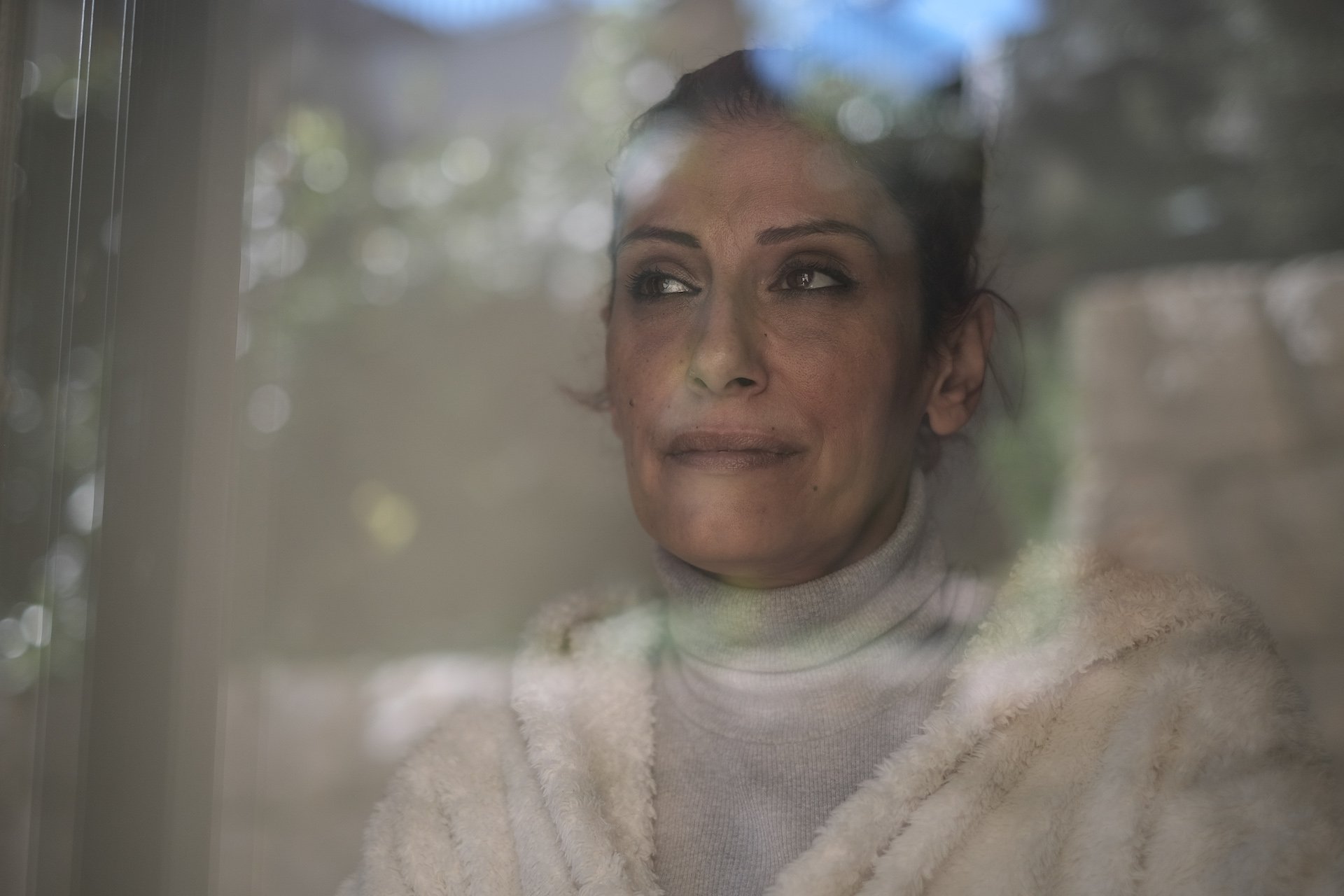 Linda Euljeckjian at the family's new home in Broummana, Lebanon. Feb. 6, 2024. (Credit: João Sousa/L'Orient Today)
Linda Euljeckjian at the family's new home in Broummana, Lebanon. Feb. 6, 2024. (Credit: João Sousa/L'Orient Today)
“My husband is not a terrorist: he is just an Armenian who moved from Lebanon to live in Armenia,” his wife, Linda Euljeckjian, tells L’Orient Today.
A region in tug-of-war
Vicken was born in Burj Hammoud, a suburb of Beirut settled in the early 1900s by survivors of the Armenian Genocide. He lived there along with his family and ran a coffee shop. Due to the dire economic situation in the country, he decided to move to Armenia in 2016 in search of a better life. According to his family, Vicken also obtained Armenian citizenship and started doing various jobs to earn money.
“My father loved Armenia very much,” says Serge Euljeckjian, Vicken’s 24-year-old son. “He wanted to settle down so that later he could bring us there too.”
According to Serge, Vicken mainly worked as a driver, taking tourists to different regions of Armenia and Nagorno-Karabakh.
Also known as Artsakh among Armenians, Nagorno-Karabakh is an enclave of Azerbaijan with a corridor linking it to Armenia. Despite its predominantly Armenian population, the region attained autonomous status within Soviet Azerbaijan in the 1920s, during the period of USSR rule. In the late 1980s, the population of the Nagorno-Karabakh Autonomous Region petitioned for unification with the Armenian SSR. This movement sparked Azerbaijan's aggressive response, eventually leading to a full-scale war between Armenia and Azerbaijan from 1991 to 1994.
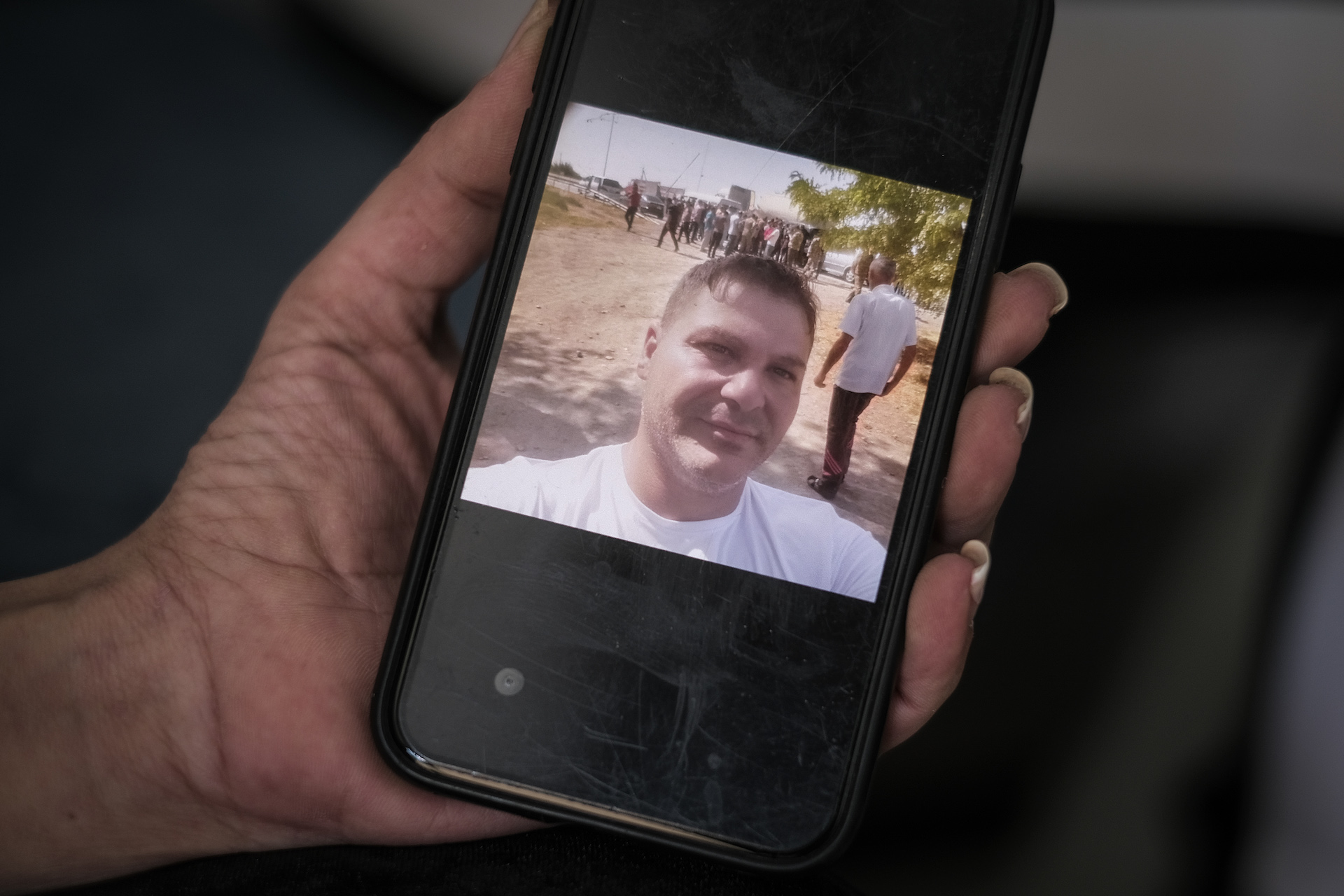 A selfie Vicken reportedly took after joining the Armenian army. Feb. 6, 2024. (Credit: João Sousa/L'Orient Today)
A selfie Vicken reportedly took after joining the Armenian army. Feb. 6, 2024. (Credit: João Sousa/L'Orient Today)
For the next nearly 30 years, the self-proclaimed Republic of Nagorno-Karabakh operated under the leadership of ethnic Armenians. The situation radically changed after the major military conflict in 2020 when Azerbaijan took control over a part of Nagorno-Karabakh. Azerbaijan later achieved the region’s complete surrender following a lightning assault in September 2023, leading to a final exodus of Armenians from Nagorno-Karabakh that some experts describe as a form of ethnic cleansing.
But before all the recent bloodshed started, “my father was waiting to get a house from the Nagorno-Karabakh government, as they had a repatriation program for Armenians living abroad,” says Serge.
“Before the war he was staying in the hotel in the city of Shushi in Artsakh, waiting for the completion of the construction of his house.”
When the war began in 2020, like many other Armenian men, Vicken volunteered to join the army. Possessing Armenian citizenship also guaranteed him this right. Nevertheless, according to his family, he hardly took part in the war and returned to Yerevan after the first few days.
Arrest and staged trial
When the Russian-mediated ceasefire was signed between Armenia and Azerbaijan on Nov. 9, 2020, many people who had been displaced from Nagorno-Karabakh returned to retrieve their belongings from the territories being handed over to Azerbaijan.
Vicken, too, made that fateful return journey.
Recalling their last conversation before Vicken's capture, while Vicken was en route to Shushi, Serge says that his father was unaware of the city being completely under Azerbaijan's control. Along with one other Lebanese-Armenian, Maral Najarian, he headed to the city to take their belongings. Despite being unarmed civilians, both were captured by Azerbaijani soldiers and sent to Baku, Azerbaijan’s capital — details Vicken’s family says they didn’t learn until three months after his disappearance.
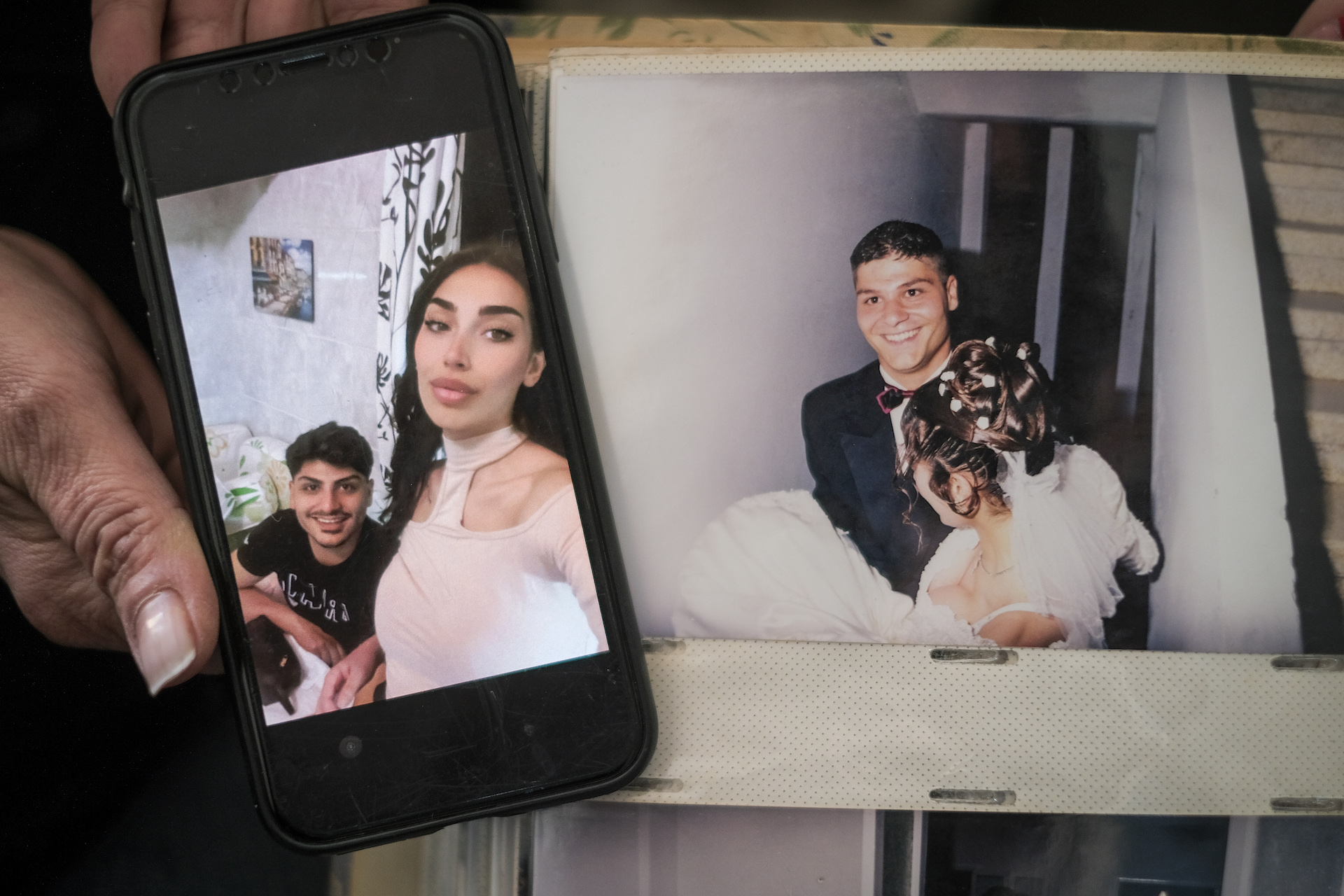 Serge Euljeckjian and his fiance in a cell phone photo next to a printed picture of Vicken and his wife Linda on their wedding day. Feb. 6, 2024. (Credit: João Sousa/L'Orient Today)
Serge Euljeckjian and his fiance in a cell phone photo next to a printed picture of Vicken and his wife Linda on their wedding day. Feb. 6, 2024. (Credit: João Sousa/L'Orient Today)
After several months, Maral Najarian was released, while Vicken was accused by the State Security Service of Azerbaijan of being a “mercenary terrorist” from Lebanon, allegedly fighting for $2,500, and found guilty by Azerbaijani court on June 14, 2021.
This decision was condemned by Armenia’s Ministry of Foreign Affairs, which stated in a press release that Vicken “was kidnapped by the Azerbaijani armed forces” and the court decision was based “on forced confessions obtained through torture.”
According to Siranush Sahakyan, an international law expert and a representative of the interests of Armenian prisoners of war at the European Court of Human Rights (ECHR), Vicken's criminal case “is completely fabricated” in response to international accusations of Azerbaijan paying foreign mercenary fighters during the 2020 war.
In its resolution on the implementation of the Common Foreign and Security Policy – Annual Report 2020 adopted in January 2021, the European Parliament accused Turkey of sending foreign “terrorist” fighters from Syria and elsewhere to Nagorno-Karabakh.
“Azerbaijan uses Armenian war prisoners to put pressure on the Armenian government and to justify keeping them as hostages, it creates fake criminal cases and carries out staged trials,” Sahakyan tells L'Orient Today.
Despite Azerbaijan's claims that Armenia used foreign mercenaries in the 2020 Nagorno-Karabakh war, no international organization has issued a statement confirming this information.
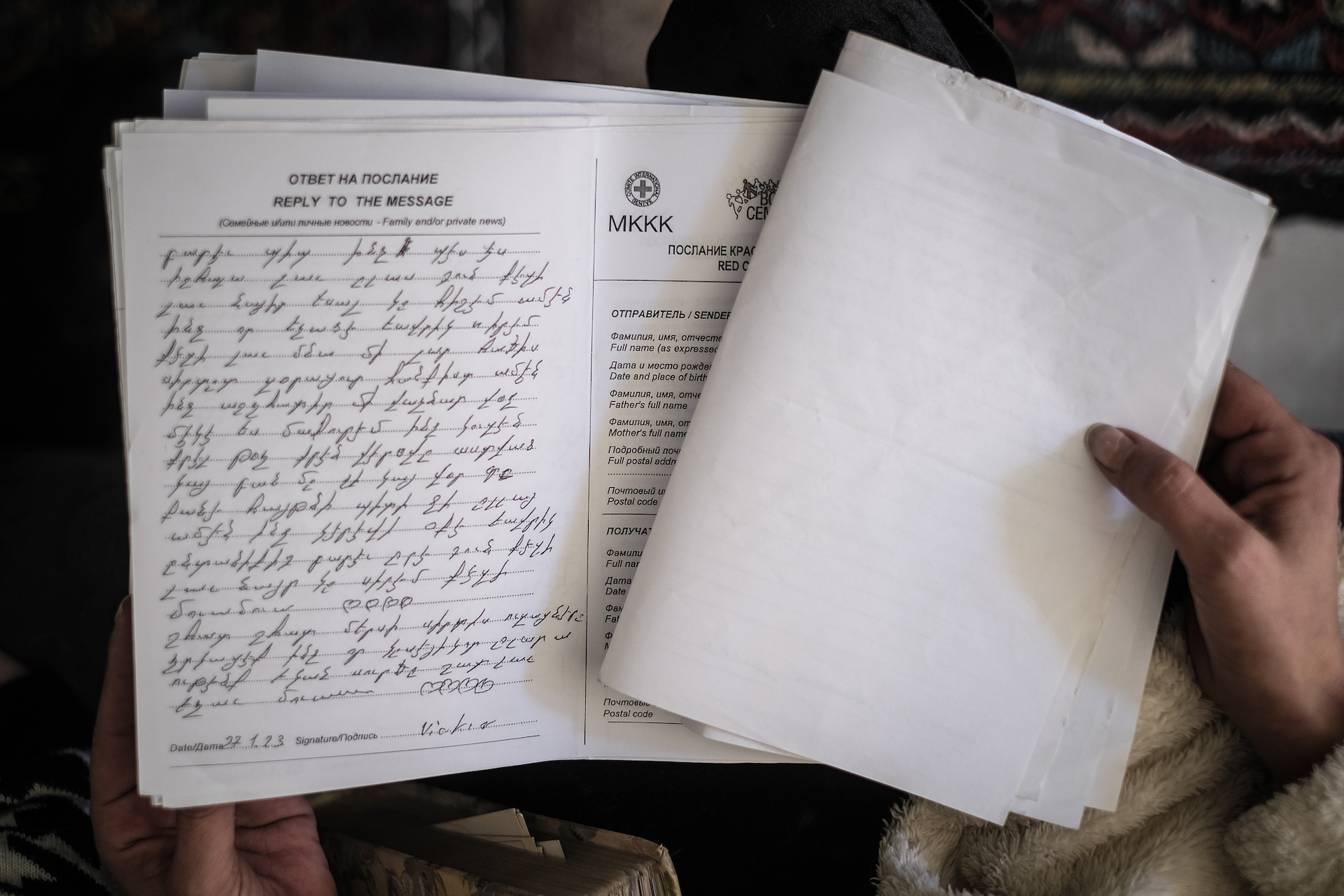 A letter from Vicken written in Azerbaijani detention and sent to his family in Lebanon. Feb. 6, 2024. (Credit: João Sousa/L'Orient Today)
A letter from Vicken written in Azerbaijani detention and sent to his family in Lebanon. Feb. 6, 2024. (Credit: João Sousa/L'Orient Today)
During these three years, the family has tried to prove Vicken's innocence, but their efforts have so far been unsuccessful.
In videos shown to the family by the Red Cross, Vicken is seen wearing long clothes, regardless of the weather, his family says. However, family members claim have observed signs of violence on his face, particularly during the initial months of his imprisonment.
“Many repatriated captives have testified about the torture against them, as well as the torture against Vicken with particular cruelty,” says Sahakyan. This was also confirmed by Human Rights Watch (HRW), which found that Armenians were subjected to cruel and degrading treatment and torture at the hands of Azerbaijani authorities either when they were captured, during their transfer or while in custody at various detention facilities.
Later Azerbaijan’s Ministry of Foreign Affairs rejected the claims of the HRW report stating it is “one-sided and falls short of providing an objective situation.”
Growing health concerns
From his arrest in 2020 until late last year, Vicken was forbidden by his captors from speaking Arabic, the native language of his wife Linda, leaving the couple unable to communicate properly when talking over the phone as she doesn’t speak Armenian, she says.
Because of Vicken’s 24-day hunger strike in November 2023, the couple is now finally allowed to speak Arabic.
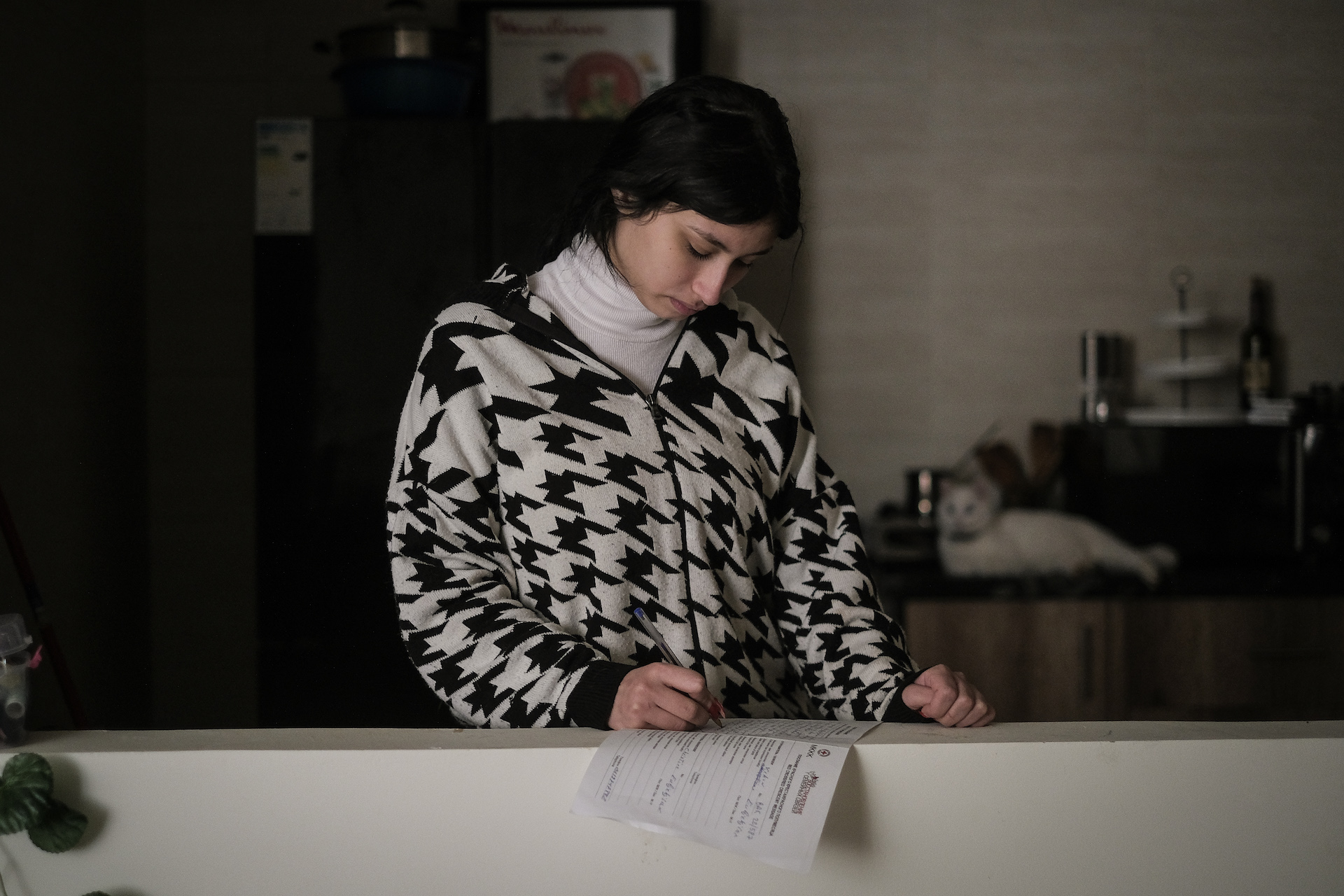 Vicken's daughter Christin writes a letter to him in the Armenian language, from the family's new home in Broummana, Lebanon. His wife, Linda, is unable to communicate in Armenian as Arabic is her native language. Feb. 6, 2024. (Credit: João Sousa/L'Orient Today)
Vicken's daughter Christin writes a letter to him in the Armenian language, from the family's new home in Broummana, Lebanon. His wife, Linda, is unable to communicate in Armenian as Arabic is her native language. Feb. 6, 2024. (Credit: João Sousa/L'Orient Today)
“It was so hard to communicate with him: I could not understand what he needed, nor could I give him hope,” Linda recalls. “Even now, we cannot communicate freely as he is always guarded by Azeri soldiers, so he cannot tell me what is truly happening there. But I can feel he is in pain, he is suffering.”
The family is also extremely worried about Vicken’s health condition, as he reportedly barely eats and has lost a significant amount of weight.
“His face has changed, he has aged a lot in these three years due to this severe psychological condition,” says Vicken’s son, based on videos of his father shown to the family by the Red Cross. “During our last calls, he also mentioned that they do not provide him with the medicine he asks for, mainly drugs for bronchitis and antidepressants.”
As a result of recent bilateral negotiations between Armenia and Azerbaijan in December 2024, 32 more prisoners were set to be repatriated. Vicken's name was on the list published by Azerbaijani media, but the family’s hopes soon faded away.
“The Red Cross representative called us and said they already had Vicken’s documents, but at the last minute, a decision was changed, and instead of my father, another prisoner was released,” says Serge, adding that no official has explained to them why the change occurred.
Azeri authorities have not publicly commented on the apparent change.
A sliver of hope
“We tried a lot to understand the reasons why freeing Vicken is to no avail until now and what the obstacles are,” MP Paula Yacoubian tells L’Orient Today. Since the beginning of 2023, she has been raising the issue with Lebanese government officials and Armenia’s ambassador in Lebanon. Still, however, “I did not receive any official reply to that question so far.”
Vicken’s case has also received next to no press coverage in Lebanon, his home country.
According to Yacoubian, the sectarian nature of Lebanon’s society and political scene means that the local Armenian community and Armenian parties should do more to help Vicken.
Hagop Pakradounian, head of Lebanon’s leading Armenian political party Tashnag, did not respond to requests for comment in time for publication.
In response to L'Orient Today’s written request, the Armenian Foreign Affairs Ministry said that Vicken Euljeckjian’s case is on its agenda.
“Considering that Vicken is a citizen of Lebanon, among other countries, RA's [Republic of Armenia] cooperation with the Lebanese government is more intense. The latter, on his part, also raises the issue of releasing and repatriating its citizen as soon as possible on various platforms,” the statement read.
On Feb. 1, 2021, The Government of Armenia submitted its first interstate complaint with the European Court of Human Rights (ECHR) against Azerbaijan in connection with violations of international conventions, committed by it during and after the 44-day war in Nagorno-Karabakh several months earlier. The complaint, among other things, addresses issues related to the protection of the rights of prisoners of war and individual civilian captives.
According to Siranush Sahakyan, Vicken Euljeckjian’s case is included in this interstate complaint.
"With the ECHR's permission, Vicken's family has the opportunity to participate as an interested third party in the case," says Ms. Sahakyan, adding that the family should be represented by well-experienced human rights lawyers.
She suggests the family cooperate with the State of Armenia and follow the progress of the interstate complaint, which will also impact Vicken’s interests.
Over the years, Linda has been continuously receiving hateful messages through social media from Azerbaijani users, she says, which turned an already difficult situation into a nightmare.
Nevertheless, she says she’s still hopeful that others will join her in her fight for the release of Vicken and other Armenians detained in Baku. “Life is so harsh without having your dad, your husband by your side. We need him and we miss him,” says Linda.
“My father has no hope that he will get out of there. Sometimes he urges us to forget about him and live our own lives,” Serge says. “But we love him, we are waiting for him and we pray every single day for his and others’ return.”